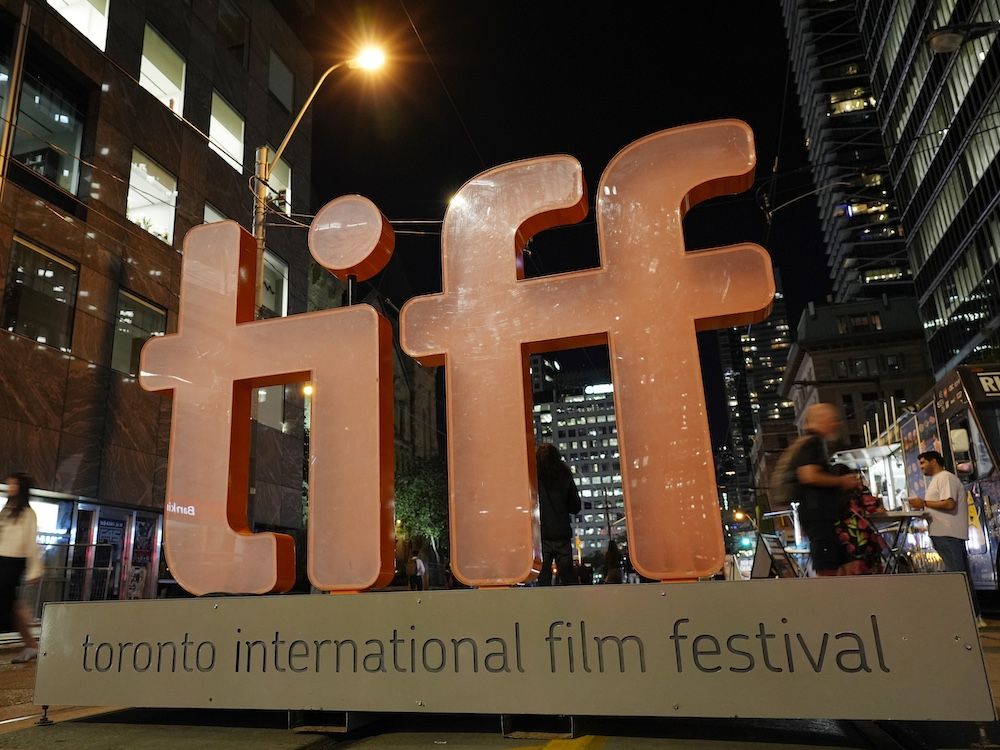
Yesterday, Toronto International Film Festival (TIFF) CEO Cameron Bailey issued an apology to the makers of a documentary about the October 7 attacks by Hamas terrorists, and to the “TIFF community.” But some Jewish community leaders as well as politicians are saying it’s not enough.
TIFF sparked anger from filmmakers and Jewish groups this week when it was revealed that the festival had rescinded an invitation for The Road Between Us: The Ultimate Rescue to screen at this year’s festival, which kicks off Sept. 4.
The film, produced by Melbar Entertainment Group and directed by Canadian filmmaker Barry Avrich, tells the story of retired Israel Defence Forces Gen. Noam Tibon, who raced from Tel Aviv to Kibbutz Nahal Oz near Gaza on October 7 to save his son Amir’s family.
In a statement to Deadline magazine and others, TIFF said the filmmakers did not secure “legal clearance of all footage,” which was among the conditions the festival requested to mitigate “known risks around the screening of a film about highly sensitive subject matter, including potential threat of significant disruption.”
But at the end of a day of raging controversy over the decision, Bailey released a statement saying “claims that the film was rejected due to censorship are unequivocally false.” He added that he was trying to find a way to show the film after all.
“I remain committed to working with the filmmaker to meet TIFF’s screening requirements to allow the film to be screened at this year’s festival,” he said. “I have asked our legal team to work with the filmmaker on considering all options available.”

Idit Shamir , Israel’s Consul General for Toronto and Western Canada, was unconvinced of the sincerity of the message.
“TIFF’s CEO delivers textbook damage control,” she wrote on social media, tagging the festival. “Apologetic tone with compassion buzzwords. Denies censorship while censoring.”
She added: “@TIFF_NET invited the October 7th film. They called it important. Then they withdrew it for phantom legal reasons forcing October 7th survivors to seek Hamas permission for massacre footage. Zero transparency on core outrage. PR perfume on institutional moral rot.”
TIFF's CEO delivers textbook damage control. Apologetic tone with compassion buzzwords. Denies censorship while censoring. @TIFF_NET invited the October 7th film. They called it important. Then they withdrew it for phantom legal reasons forcing October 7th survivors to seek Hamas… https://t.co/w8qR9idgWa
— CG Idit Shamir 🎗️ (@ShamirIdit) August 14, 2025
Shamir wasn’t the only one pushing back. Stan Cho, Ontario’s Minister of Tourism, Culture and Gaming, released a statement on social media saying he had spoken with Iddo Moed, Israel’s Ambassador to Canada, about the situation, underlining the importance of film as a medium for dialogue, and reiterating the province’s condemnation of the October 7 attacks.
Cho added that, while the Ontario government does not interfere in TIFF’s programming choices, he was struck by the lack of communication from the festival, which receives provincial as well as federal funding.
“I was troubled to hear that when my office contacted TIFF to better understand its decision, TIFF shared its generic media statement without offering an opportunity to discuss further,” he said. “I encourage TIFF to further its dialogue with the Jewish community and other relevant stakeholders to better understand their concerns.”
Please read my statement regarding the Toronto International Film Festival’s decision to withdraw ‘The Road Between Us: The Ultimate Rescue’ from its 2025 schedule. pic.twitter.com/oJZ9gOR073
— Stan Cho (@StanChoMPP) August 13, 2025
Throughout the day Wednesday before Bailey’s statement was released, numerous Jewish groups as well as the filmmakers themselves had raised their concerns.
“We are shocked and saddened that a venerable film festival has defied its mission and censored its own programming by refusing this film,” Avrich’s team said in a statement to National Post. “Ultimately, film is an art form that stimulates debate from every perspective that can both entertain us and make us uncomfortable. A film festival lays out the feast and the audience decides what they will or won’t see.”
Canada’s Centre for Israel and Jewish Affairs (CIJA) said in a statement: “It is unconscionable that TIFF is allowing a small mob of extremists — who use intimidation and threats of violence — to dictate what films Canadians can see at the festival. This shameful decision sends an unmistakable message: Toronto’s Jewish community, which has long played an integral role at TIFF, is no longer safe or welcome.”
The group Canadian Women Against Antisemitism has also released a statement on social media, calling on supporters to demand that TIFF reverse its decision, and to “tell Ontario and Canada: No more funding for cultural capitulation.” (The provincial and federal governments are both TIFF sponsors.)
Toronto’s Beth Tzedec Congregation synagogue also released a statement, calling the situation “profoundly troubling.” The Friends of Simon Wiesenthal Centre also added its voice to those calling for a reversal of TIFF’s decision.
Today's cover: Toronto Film Fest outrageously cuts Oct. 7 doc because Hamas didn’t give footage permission: ‘Absurd and bizarre’ https://t.co/Q1Hzjnu6Fx pic.twitter.com/bdH7OhxonM
— New York Post (@nypost) August 14, 2025
The festival may be anxious to avoid a repeat of protests of the sort that occurred last year, when the film Russians at War was denounced as Russian propaganda by Ukrainian groups, then-Deputy Prime Minister Chrystia Freeland and others. TIFF defended its inclusion in the festival, but then cancelled screenings and ultimately gave the film a limited release only after the festival ended.
Also last year, a screening of TIFF’s opening-night film Nutcrackers by David Gordon Green also saw protests against festival sponsor the Royal Bank of Canada for its ties to Israel.
TIFF this year runs from Sept. 4 to 14 at the Lightbox and other nearby locations in downtown Toronto.
Our website is the place for the latest breaking news, exclusive scoops, longreads and provocative commentary. Please bookmark nationalpost.com and sign up for our newsletters here.